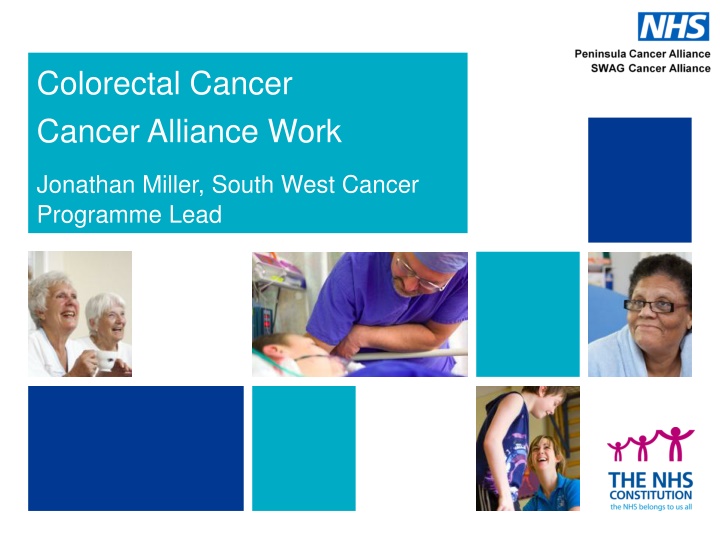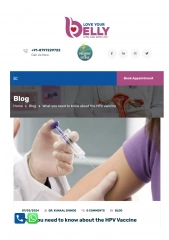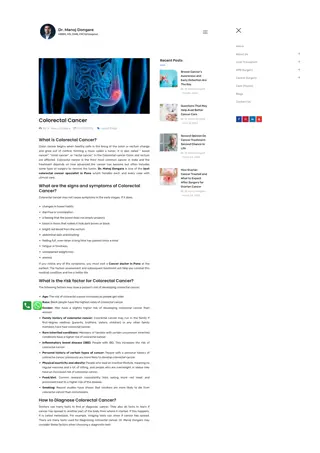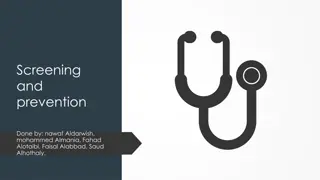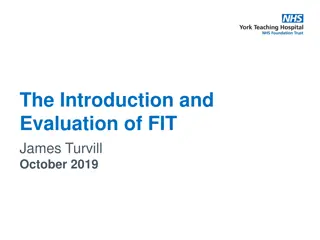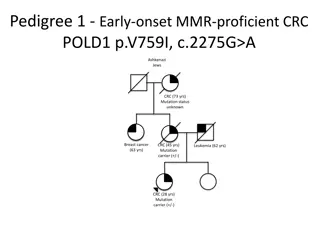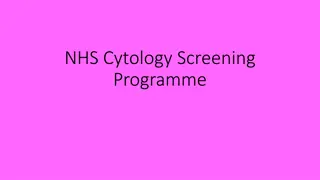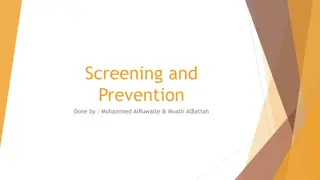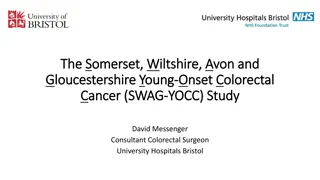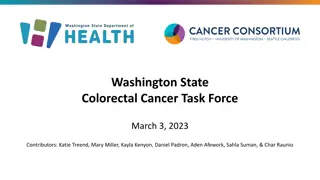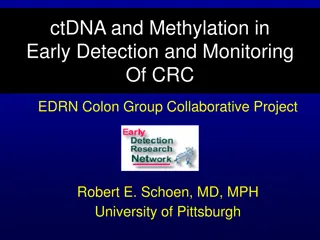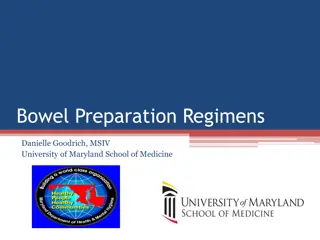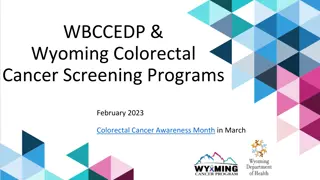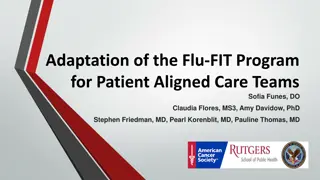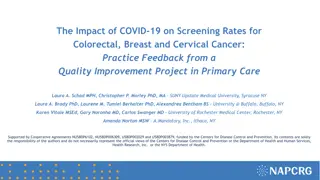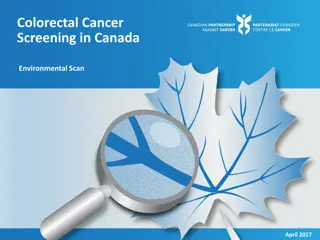Advances in Colorectal Cancer Screening Guidelines
Colorectal Cancer Alliance work led by Jonathan Miller focuses on implementing NICE guidelines for suspected cancer cases, emphasizing direct access for tests including faecal occult blood testing and the adoption of the more specific and sensitive Faecal Immunohistochemical Test (FIT) over the older Guaiac test. The NICE DG30 referral criteria published in 2017 encourage using faecal blood tests for patients with abdominal symptoms. The introduction of FIT in the National Bowel Cancer Screening Programme by March 2019 is expected to increase uptake and optimize screening detection thresholds.
Download Presentation

Please find below an Image/Link to download the presentation.
The content on the website is provided AS IS for your information and personal use only. It may not be sold, licensed, or shared on other websites without obtaining consent from the author.If you encounter any issues during the download, it is possible that the publisher has removed the file from their server.
You are allowed to download the files provided on this website for personal or commercial use, subject to the condition that they are used lawfully. All files are the property of their respective owners.
The content on the website is provided AS IS for your information and personal use only. It may not be sold, licensed, or shared on other websites without obtaining consent from the author.
E N D
Presentation Transcript
Colorectal Cancer Cancer Alliance Work Jonathan Miller, South West Cancer Programme Lead
Cancer Alliances & NICE NG12 NICE Guidelines on Suspected Cancer published June 2015 Referral forms revised to match new criteria Focus on increasing direct access for GPs to tests Recommended faecal occult blood testing NG12 describes cost benefit even with old Guaiac test
NICE NG12 Criteria for occult blood in faeces test are aged 50 and over with unexplained: abdominal pain or weight loss, or are aged under 60 with: changes in their bowel habit or iron-deficiency anaemia, or are aged 60 and over and have anaemia even in the absence of iron deficiency.
Faecal Immunohistochemical Test Old test for faecal blood - Guaiac test - was decommissioned as it was deemed poor quality. So no way for GPs to use this NICE recommendation locally Evidence emerging of quality of new test Faecal Immunohistochemical Test FIT. More specific and sensitive Quantitative result (rather than plain +ve or ve) Both South West Cancer Alliances bid and awarded funding to implement FIT in the South West using NG12 criteria Service started in June 2018
NICE DG30 referral for colorectal cancer in primary care Published July 2017 Encourages use of the test for any patient with abdominal symptoms who does not fit the NG12 2WW criteria. Recommends a threshold of 10 g of haemoglobin per gram of faeces Local service is only for criteria in NG12 plus amended from are aged under 60 with changes in bowel habit or iron- deficiency anaemia 50 to 60 with changes in bowel habit or iron-deficiency anaemia Local service uses threshold of 10 g/g for 2ww referral
FIT in Bowel Cancer Screening FIT to be introduced by March 2019 in to National Bowel Cancer Screening Programme Threshold to be 120 g/g Uptake likely to increase by 7% as test is more user friendly Additional demand expected. Screening centres working through capacity plans with commissioners Evidence suggests optimal screening detection threshold approx. 90 g/g
FIT Other indications A number of studies are testing FIT in high risk patients i.e. those meeting criteria for 2 week wait referral Non-English studies indicates this is appropriate and may reduce demand for referral by 40% Some evidence that FIT could be used in screening programme in place of surveillance colonoscopy FIT could have a place in surveillance following colorectal cancer
Colorectal Timed Pathway Straight to Test Alliances recommend introduction of steps to allow patients to go straight from GP to test (colonoscopy, flexi- sigmoidoscopy, CT colonography) This is in place in all but 2 South West providers Method of triage varies (nurse vs consultant, phone vs paper, direct electronic booking by GP) Proportion of patients triaged to specific tests or outpatient appointment likely to vary Cohort this process applies to varies (2ww vs routine referral)
